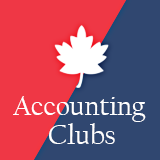Chapter 5: Future developments
Before its merger with the SASB, the IIRC reinforced how the <IR> Framework can be relevant to the work of the IFRS Foundation (IFRSF) as it moves towards establishing the International Sustainability Standards Board (ISSB).
In terms of its content and framework, the IIRC noted in its response to the IFRSF’s consultation that “it will be critical to demonstrate the connectivity between financial and sustainability standards in order to advance a vision of a comprehensive and cohesive corporate reporting system. Tools such as the International <IR> Framework can be a helpful starting point in developing a connecting conceptual framework.”
Further, the IIRC stated that “the consideration of six inter-connected ‘capitals’, or resources and relationships, underpins a definition of materiality focused on those factors, including sustainability information, that will impact value creation over time, taking account of the legitimate needs and expectations of stakeholders and the wider business environment. This leads to an alignment of purpose, strategy, business model and streamlined KPIs, resulting in stronger corporate governance and levels of accountability. The focus on enterprise value creation directs the organization itself to allocate resources—including intellectual and human capital—towards creating a sustainable long-term strategy and business model.”
Institutionally, some of the groundwork is already underway, with the completed merger of the IIRC and the SASB to form the Value Reporting Foundation (VRF). The new organization houses both the <IR> Framework and SASB Standards (each retaining robust and independent due processes), with the aim to achieve system change.
The IIRC supports a strong institutional alliance between the IFRSF and the VRF in its consultation response and reiterates their commitment to work with the IFRSF to create a cohesive and comprehensive global corporate reporting system that protects the integrity of capital markets and serves the interests and needs of broader society.
